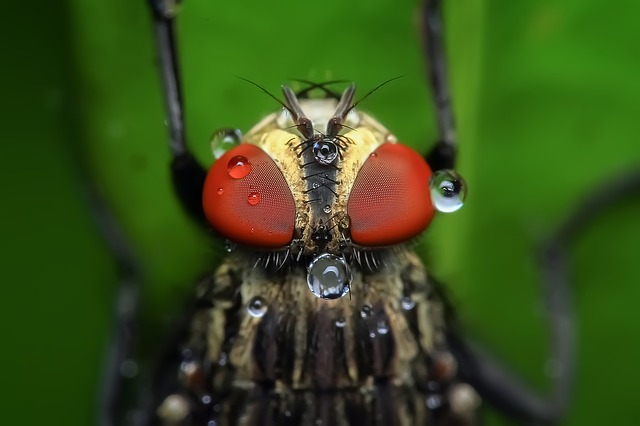Seattle, Washington-based Beta Hatch, a startup focused on the commercialization of the sustainable production of insects as a protein source in animal feed, announced it has raised a Seed Round totaling $2.1 million. The round, which represents one of the larger capital raisings in the U.S. insect protein industry, included Cavallo Ventures, the venture capital arm of Wilbur-Ellis; angel investment group Element 8 Fund Keiretsu Capital, the fund partner of the Keiretsu Group, the most active venture investor in the world; Kansas-based pet food equity investor NQV8; and Montana-based investment network, Frontier Angels.
“This was one of the largest rounds of fundraising ever for insect feed in the U.S.,” said Beta Hatch Founder and CEO Virginia Emery. “Seeing interest and investment from such a wide range of investors and companies is encouraging. And, with this round of funding closed, we’re very excited to move to the next phase of our business, which is building our precommercial facility and continuing to refine our technology and process.”
Partnership
Founded in 2015, Beta Hatch applies both entomology and engineering expertise to superior genetic stock with the goal of developing systems that can disrupt existing food systems and make industrially produced insects the next commodity crop, according to their website.
Concurrent with the announcement of its successful Seed Round, Beta Hatch also announced its newly forged partnership with Texas-based EVO Conversion Systems, one of the world’s top research groups focused on black soldier flies (BSF). Through this partnership, Beta Hatch will become a member of the EVO Consortium, a group that will give Beta Hatch access to EVO’s fundamental technologies as well as the ability to work closely with other members of the Consortium developing insect production technologies.
“We are very excited to apply our insect ranching technology with other species, and to expand our feedstock options by working with black soldier fly,” said Emery. “Mealworms, our foundational insect, grow in a dry production system and can eat a wide range of organic byproducts, but these feedstocks need to be dried first. Black soldier flies are another species grown for feed, but in a wet production system. Our ranch technology has been designed to be species agnostic to accommodate all kinds of insects and maximize their potential for recycling organics in the food system. We are excited to learn more about black soldier flies through this partnership with EVO.”
For EVO, the tie-in with Beta Hatch reflects the company’s first partnership with a U.S.-based producer.
“We are excited to have our first partner in the U.S.,” said Jeffrey K. Tomberlin, PhD, EVO Conversion Systems’ Director of Operations and Texas A&M University Associate Professor and AgriLife Research Fellow. “Beta Hatch has enthusiasm, passion, drive and a clear dedication to the environment and what the industry represents to the community. This is just the beginning of a long-term partnership where we stand shoulder to shoulder, moving forward to address concerns of food waste and protein production in both the U.S. and abroad.”
Gearing up Globally
Insect production for use by the animal feed and agriculture sectors has seen a level of institutional investor interest, more so outside the U.S.
In December 2016, Paris-based mass-scale breeder and producer of insects for the livestock, pet, and fish feed markets, Ynsect, raised $15.2 million through a Series B led by Future Positive Capital, Quadia SA and Bpifrance Ecotechnologies and including existing investors, Emertec, Demeter, Vis Vires New Protein Capital and Business Angels.
This was followed by 2017 which proved to by dynamic. In January of last year, NextProtein, a Paris and Tunis-based producer of animal feed components and biological fertilizer from insect larvae, raised €1.3M in a funding round featuring Kima Ventures, along with angel investors – Jerome Lecat, Khaled Helioui, (who also backed Uber and Deliveroo), Sylvie Ganter, Christophe Cervasel, and participants from the Anaxago financing platform and AngelSquare.
Two months later, in March 2017, Hexafly, an Irish biotech startup founded by three 26-year-old university friends – Alvan Hunt, John Lynam, and Patrick McGarvey – secured a second round of funding totaling €1 million (US$1.07 million) to scale up their insect farming operation.
Targeting their business toward disrupting the animal feed industry was not a random decision. The Farmers Journal reports that the EU aquaculture feed market is worth €4.3 billion (US$4.62 billion), the chitin market is valued at €56 billion (US$60 billion), and the EU plant fertilizer market is worth €670 billion (US$720 billion).
“We saw very little innovation in the agtech scene in terms of feed,” Hunt told the Journal. “The same feed sources have been used for decades; there has been very little change.”
Soon after, in June of last year, Dutch biotech startup, Protix, which breeds insects for sustainable animal feed production, raised €45 million (just under US$50.5 million) in a recently closed round including Aqua-Spark, Rabobank, BOM, and additional unnamed investors.
And in January of this year, Ontario-based Dane Creek Capital Corp. (DCCC), a pet investment-focused merchant banking venture, announced it had completed its third round of funding for Midgard Insect Farm, a company that sees alternative proteins, including crickets and mealworms, as key components to the future of the livestock feed sector.
-Lynda Kiernan

